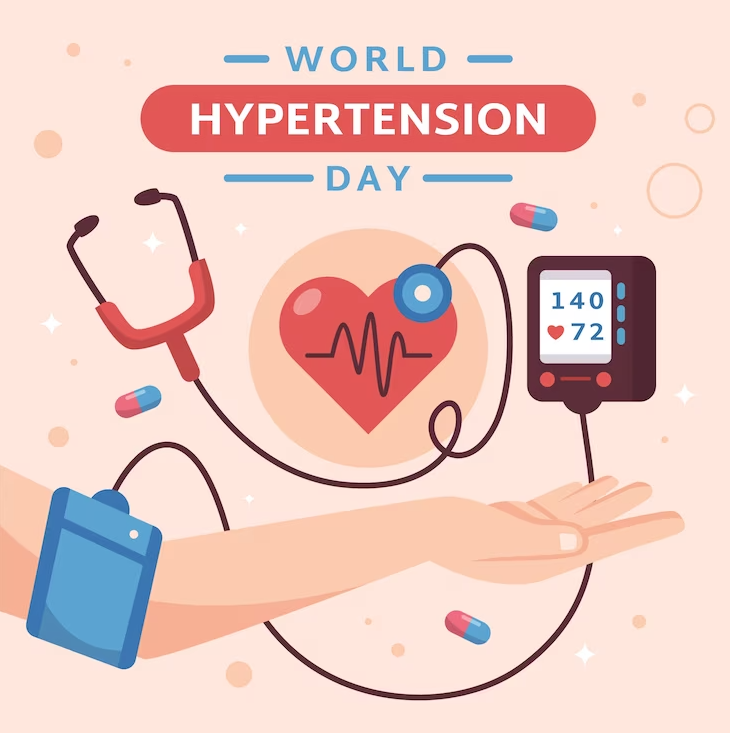
-
Posted By admin
-
-
Comments 0
High blood pressure, medically known as hypertension, is a common and potentially serious condition characterized by elevated levels of pressure in the arteries. It is often referred to as the “silent killer” because it typically shows no overt symptoms until it reaches advanced stages. In this article, we will explore the causes, symptoms, and strategies for managing high blood pressure.
Causes of High Blood Pressure
- Genetics and Family History
A family history of high blood pressure can significantly increase an individual’s risk of developing the condition. Genetic factors can play a role in how the body regulates blood pressure.
- Unhealthy Lifestyle Choices
Poor dietary habits, excessive sodium intake, lack of physical activity, excessive alcohol consumption, and smoking can contribute to the development of high blood pressure. These factors can lead to weight gain, high cholesterol levels, and overall poor cardiovascular health.
- Age and Gender
As individuals age, the risk of developing high blood pressure increases. Men are more likely to develop high blood pressure at a younger age, while women are at greater risk after menopause.
- Obesity
Excess body weight, particularly around the abdomen, can lead to increased blood pressure. Adipose tissue produces substances that can affect blood vessel function and lead to hypertension.
- Chronic Stress
Persistent stress and a high-stress lifestyle can contribute to high blood pressure. Stress hormones can narrow blood vessels and elevate heart rate, leading to increased blood pressure.
Symptoms of High Blood Pressure
- Headaches
While not a definitive symptom, some individuals with high blood pressure may experience frequent headaches, particularly in the morning.
- Dizziness or Lightheadedness
Severe hypertension can lead to feelings of dizziness or lightheadedness. In some cases, it can even cause fainting.
- Chest Pain or Discomfort
Extreme cases of high blood pressure can lead to chest pain or discomfort, which may be mistaken for symptoms of a heart attack. This requires immediate medical attention.
- Blurred Vision
High blood pressure can affect blood vessels in the eyes, leading to vision problems or even vision loss if left unmanaged.
- Shortness of Breath
In advanced cases, high blood pressure can lead to shortness of breath, particularly during physical activity.
Management and Treatment
- Lifestyle Modifications
Adopting a heart-healthy lifestyle is crucial for managing high blood pressure. This includes maintaining a balanced diet rich in fruits, vegetables, whole grains, and lean proteins. Reducing sodium intake, engaging in regular exercise, limiting alcohol consumption, and quitting smoking are also essential.
- Medication
For individuals with persistently high blood pressure, medication may be prescribed. There are various types of medications, including diuretics, ACE inhibitors, beta-blockers, and calcium channel blockers, each working to lower blood pressure through different mechanisms.
- Regular Monitoring
Regular blood pressure checks are essential to monitor progress and ensure that treatment measures are effective. Home blood pressure monitors are also useful for tracking blood pressure levels between healthcare provider visits.
- Stress Management Techniques
Engaging in stress-reducing activities such as meditation, deep breathing exercises, yoga, and mindfulness can help lower blood pressure and improve overall cardiovascular health.
Conclusion
High blood pressure is a common condition that can lead to serious health complications if left untreated. Understanding the causes, recognizing potential symptoms, and implementing effective management strategies are crucial for maintaining optimal cardiovascular health. With proper lifestyle adjustments, medication management, and regular medical check-ups, individuals with high blood pressure can lead healthy, fulfilling lives. It is important to work closely with a healthcare provider to develop a personalized treatment plan tailored to individual needs.



